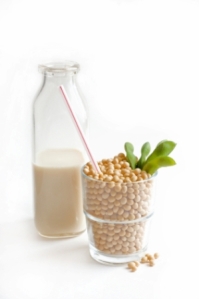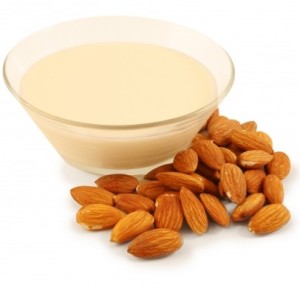Recent Posts
Our Top 10 Posts
Archives
Categories
Join 1,165 other subscribers
The Natural Health and Holistic World According to Dr Akilah
Almond Milk vs Soy Milk: Both almond milk and soy milk are loaded with health benefits. Each are extremely different from cow’s milk and have a lot more health benefits. Soy milk is made by soaking soybeans and grinding them into water. Most will agree that soy milk has somewhat of a “beany” taste. Almond milk on the other hand has been said to contain a “light, nutty, and crisp” taste. Fortunately, each type of milk provides roughly the same health benefits.
 Soy Milk
Soy MilkSoy milk contains an abundance of protein and a small amount of fiber. The protein and fiber come from the soybeans it is made with. Protein is necessary for muscle mass and can also help provide a “full” feeling to prevent hunger. Fiber can also help to prevent excess hunger. It is necessary for a healthy digestive system and can also help to lower the risk for heart disease, diabetes and cancer.
One of the most notable benefits of soy milk is that it contains isoflavones, which are natural chemicals similar to the female hormone estrogen. It has been suggested that isoflavones may help to decrease the risk of osteoporosis, cancer, heart disease and high blood pressure.
Soy milk also contains no lactose. Approximately 75 percent of the human population has a lactose intolerance at some point in their lives. It also contains prebiotic sugars stachyose and raffinose, which can boost immunity and decrease the amount of toxins inside the body.
Another benefit is the lack of allergies to soy milk experienced among children. In comparison, approximately 0.5 of all children have been found to be allergic to soy milk, whereas 2.5 were found to have an allergy to cow’s milk.
 Almond milk is considered to be a healthy, flavorful, nutritious beverage. A lot of people drink almond milk plain or unsweetened almond milk, while others choose to use it as an extra ingredient to enhance the flavor of certain foods. One of the first benefits of almond milk is that it contains less calories than most other types of milk. It’s an effective replacement beverage, especially if you’re trying to lose weight. What’s better is that you don’t have to sacrifice flavor.
Almond milk is considered to be a healthy, flavorful, nutritious beverage. A lot of people drink almond milk plain or unsweetened almond milk, while others choose to use it as an extra ingredient to enhance the flavor of certain foods. One of the first benefits of almond milk is that it contains less calories than most other types of milk. It’s an effective replacement beverage, especially if you’re trying to lose weight. What’s better is that you don’t have to sacrifice flavor.
Almond milk contains an abundance of magnesium, potassium and Vitamin E, all of which are a necessary part of everyone’s diet. Magnesium is necessary for the body’s absorption of calcium, leading to healthier bones and teeth. Potassium is necessary for keeping the heart, brain and kidney tissues strong and healthy. Vitamin E is essential for helping to fight off free radicals, resulting in a lesser chance of developing deadly diseases such as cancer, as well as slowing down the process of aging.
Quite like soy milk, almond milk is also a great alternative for people who experience lactose intolerance. When people who are lactose intolerant attempt to drink regular cow’s milk, they tend to suffer from bloating, indigestion, gas and also become sick in general. Most will agree that almond milk is also tastier than regular cow’s milk, making it an even better, healthier alternative altogether. In addition, it also contains an abundance of protein, making it great for building muscle. Another benefit is that it is considered the healthiest of all other dairy alternatives, especially since it’s the lowest in sugar (lower than soy milk). Almond milk is much lower in sugar in contrast to other dairy alternatives, as it contains only 8 carbs and a total of 7 grams of sugar per serving. It helps to boost energy levels and can keep blood sugar levels from spiking, making it a delightful drink for diabetics and those who suffer from lack of energy in general. It contains 50 percent of the daily recommended amount of Vitamin E. It contains 30 percent of the daily recommended amount of calcium, as well as 25 percent Vitamin D, making it an excellent source for keeping the bones strong and the immune system healthy.
So which is better? Well in my opinin if you buy almond mik, you’ll be making a wise health decision.
Follow @docakilah.
.
Akilah M. El, N.D. is a Naturopathic Doctor and board-certified Master Herbalist with a private practice in Atlanta Georgia and Berlin Germany. Join Dr Akilah El on Facebook and Twitter